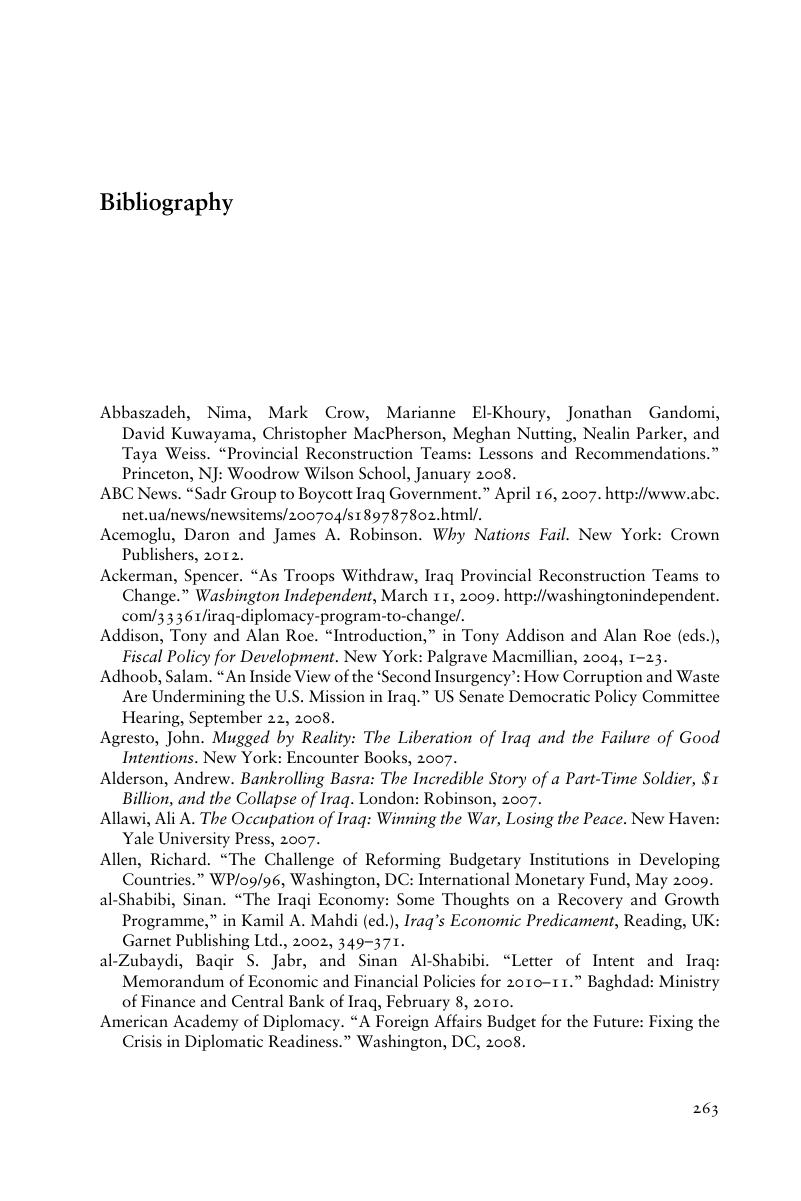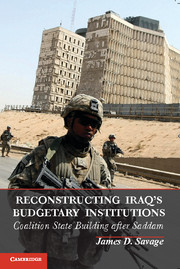Book contents
- Frontmatter
- Dedication
- Contents
- List of Tables
- List of Figures and Illustrations
- Preface
- Abbreviations
- 1 State Building and the Reconstruction of Iraq’s Budgetary Institutions
- 2 The Evolution of Iraqi Budgetary Institutions from the Ottomans and the British Mandate through Saddam
- 3 Prewar Planning for Iraq’s Economic and Budgetary Reconstruction
- 4 Boots on the Ground
- 5 Building Iraqi Ministerial Capacity
- 6 The 17th Benchmark and the Challenge of Iraqi Budget Execution
- 7 Building Iraqi Budgetary Capacity
- 8 Iraqi Budgeting
- 9 Successful State Building in Iraq?
- Bibliography
- Index
- References
Bibliography
Published online by Cambridge University Press: 05 June 2014
- Frontmatter
- Dedication
- Contents
- List of Tables
- List of Figures and Illustrations
- Preface
- Abbreviations
- 1 State Building and the Reconstruction of Iraq’s Budgetary Institutions
- 2 The Evolution of Iraqi Budgetary Institutions from the Ottomans and the British Mandate through Saddam
- 3 Prewar Planning for Iraq’s Economic and Budgetary Reconstruction
- 4 Boots on the Ground
- 5 Building Iraqi Ministerial Capacity
- 6 The 17th Benchmark and the Challenge of Iraqi Budget Execution
- 7 Building Iraqi Budgetary Capacity
- 8 Iraqi Budgeting
- 9 Successful State Building in Iraq?
- Bibliography
- Index
- References
Summary

- Type
- Chapter
- Information
- Reconstructing Iraq's Budgetary InstitutionsCoalition State Building after Saddam, pp. 263 - 282Publisher: Cambridge University PressPrint publication year: 2013



